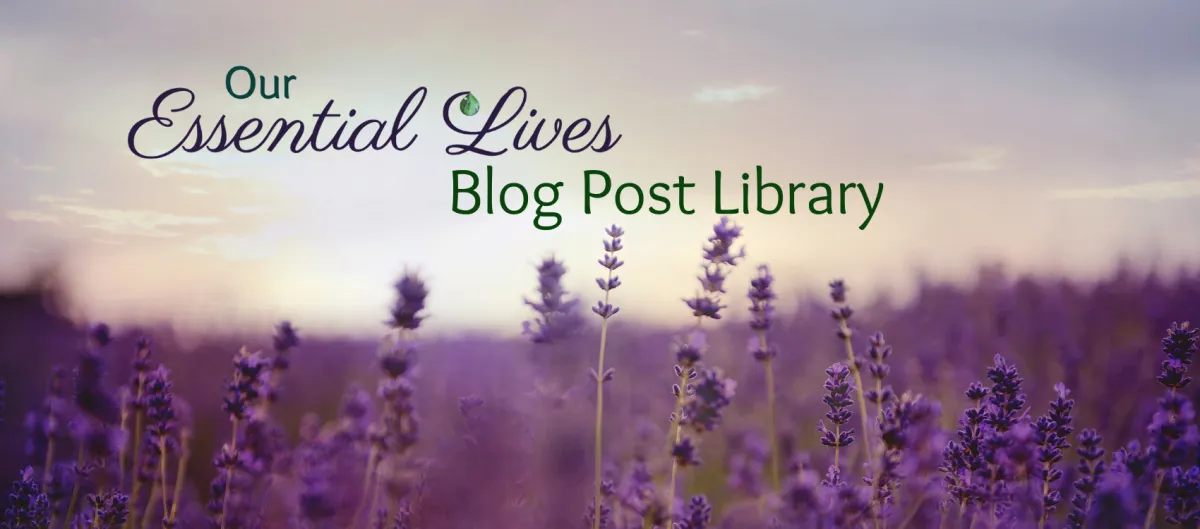

How to Make Your Own Toothpaste
"A smile is the best makeup any girl can wear." – Marilyn Monroe
DIY Homemade Toothpaste: Simple, Natural, and Effective Oral Care
If you're like me, you’ve probably looked at the ingredients in your store-bought toothpaste and wondered, "What are all of these chemicals doing in my mouth?" Well, I’ve been there too, and I wanted to take control of what I put on my skin and in my body. That’s why I decided to start making my own homemade toothpaste with essential oils—and it’s been a game-changer for my oral health.
Homemade toothpaste not only lets me avoid harmful chemicals like fluoride, sodium lauryl sulfate (sls), and artificial sweeteners, but it also allows me to customize it to suit my specific needs. After exploring different options, I landed on the perfect combination of essential oils and natural ingredients that leave my mouth feeling clean, fresh, and healthy. And I love that I’m supporting my oral health naturally without any nasty chemicals.
Let’s dive into why switching to a natural, homemade toothpaste could be the best choice for your oral care routine—and how you can make it yourself.

Why Make Your Own Toothpaste?
The thought of switching to homemade toothpaste might feel a little intimidating at first, but once you discover how simple and effective it is, you’ll never look back. Here’s why I love homemade toothpaste:
No harsh chemicals: Most commercial toothpastes contain fluoride, artificial flavors, and colors. These chemicals can sometimes cause irritation or other health concerns. When you make your own, you know exactly what’s going in your toothpaste.
Customizable: You can create a toothpaste that fits your needs. Whether you’re looking for something that fights plaque, freshens breath, or even helps whiten your teeth, you can choose the ingredients that work best for you.
Cost-effective: Making your own toothpaste is a great way to save money. Plus, you can make a batch that lasts for weeks, so you won’t need to buy store-bought versions constantly.
Eco-friendly: When you make your own toothpaste, you can use reusable containers, helping reduce plastic waste.
With these benefits in mind, let’s dive into how you can make your own toothpaste at home using natural ingredients and doTERRA’s high-quality essential oils.
Essential Oils That Take Your Toothpaste to the Next Level
doTERRA essential oils offer so many benefits for your oral health. Here are a few oils I always use in my toothpaste recipes:
Peppermint Oil: Peppermint is known for its refreshing and cooling properties. It helps to freshen your breath and leaves your mouth feeling clean and rejuvenated.
Clove Oil: Clove oil has been used for centuries for its antibacterial properties. It’s also great for reducing inflammation and promoting overall gum health.
Tea Tree Oil: Tea tree oil is a powerful antimicrobial that helps reduce bacteria and fight off germs in the mouth, making it perfect for a toothpaste recipe.
On Guard Oil Blend: This is a powerhouse blend that combines oils like Wild Orange, Clove, Cinnamon, Eucalyptus, and Rosemary. It’s great for fighting off bacteria and promoting oral health.
Frankincense Oil: Known for its soothing properties, Frankincense also supports healthy gums and may help promote cell regeneration.
SuperMint Oil Blend: A revitalizing combination of peppermint and spearmint, SuperMint helps cool the mouth, reduce bad breath, and refresh your mouth with a blast of minty goodness.

To create your own natural toothpaste, you’ll need just a few simple ingredients. Here’s what I recommend:
Coconut Oil: This is the base for most homemade toothpaste recipes. It has antibacterial properties, moisturizes the gums, and creates a smooth, easy-to-use paste.
Baking Soda: Baking soda is a gentle abrasive that helps clean teeth without damaging the enamel. It also neutralizes acids in the mouth, making it great for fighting plaque.
Essential Oils: As we mentioned, peppermint, clove, tea tree, and other essential oils are fantastic for oral health. They provide antimicrobial properties and keep your breath fresh.
Xylitol (optional): A natural sweetener that also fights bacteria and promotes oral health. It’s not necessary but can be a nice addition for those with a sweet tooth.
Sea Salt (optional): Sea salt helps to fight bacteria and can aid in gum health. It’s great if you want a more traditional, salty toothpaste flavor.
Airtight container: A small glass jar or container to store your homemade toothpaste.
How to Make Your Own Homemade Toothpaste
Here’s my simple recipe for homemade toothpaste:
Ingredients:
3 tablespoons of coconut oil (melted)
3 tablespoons of baking soda
1 to 3 drops of peppermint essential oil (start with one, you can always add more to taste)
1 to 3 drops of clove essential oil (start with one, you can always add more to taste)
1 1 to 3 drops of tea tree essential oil (start with one, you can always add more to taste)
1 teaspoon of xylitol (optional)
1/2 teaspoon of sea salt (optional)
Instructions:
Melt the coconut oil: Start by gently melting the coconut oil in a microwave or double boiler. Once it’s liquid, remove it from the heat.
Combine with baking soda: Add the baking soda to the melted coconut oil. Stir until fully mixed. The baking soda will help to naturally clean your teeth without being too abrasive.
Add essential oils: Add your essential oils (peppermint, clove, and tea tree) to the mixture and stir well. These oils will not only freshen your breath but also provide antibacterial benefits.
Add optional ingredients: If you’re using xylitol and sea salt, add them to the mixture and stir until fully incorporated.
Store: Transfer the mixture into a small glass jar with a lid. Store in a cool, dry place. To use, Apply a small amount to your toothbrush. I do not recommend dipping your toothbrush as you likely are cross contaminating toothbrushes as you spread bacteria into the paste.
Customizing Your Toothpaste
One of the best parts about making your own toothpaste is the ability to customize it. Here are a few ways you can change up the recipe:
Whitening: If you want a natural whitening effect, you can add a few drops of lemon essential oil or a pinch of activated charcoal.
Sensitive teeth: If you have sensitive teeth, try adding Frankincense essential oil to soothe your gums and reduce inflammation.
Refreshing taste: For a sweeter taste, add Stevia or Vanilla essential oil for a comforting, pleasant flavor.
Gum issues: Myrrh is a fantastic essential oil for gum issues, however it can be quite bitter. Try dipping a toothpick into a drop of myrrh on a plate and swirling that into a small portion of your paste. You can always add more oil if you find it tolerable, but this way you won’t ruin the entire batch if you find you don’t like the taste.
The Benefits of Homemade Toothpaste

Using homemade toothpaste offers a number of great benefits:
Free from harmful chemicals: Commercial toothpaste often contains artificial sweeteners, fluoride, and other harmful chemicals. Homemade toothpaste avoids all of that and instead uses natural, effective ingredients.
Cost-effective: Homemade toothpaste is affordable and will last much longer than store-bought versions.
Freshens breath naturally: The combination of essential oils like peppermint, clove, and tea tree creates a fresh, clean feeling every time you brush.
Supports gum health: Ingredients like coconut oil, baking soda, and essential oils work together to promote healthy gums and fight bacteria.
Are You Ready to Go Toxin Free and Save Money?
Making your own toothpaste is a fun and rewarding way to take control of your oral health. By using high-quality essential oils from doTERRA and natural ingredients, you’re creating a product that’s not only effective but safe for your teeth and gums. Whether you're looking to freshen your breath, reduce plaque, or simply avoid the chemicals found in commercial toothpaste, this DIY toothpaste recipe is an easy and affordable way to start. Give it a try and see how much better your mouth feels with this natural approach to oral care.

